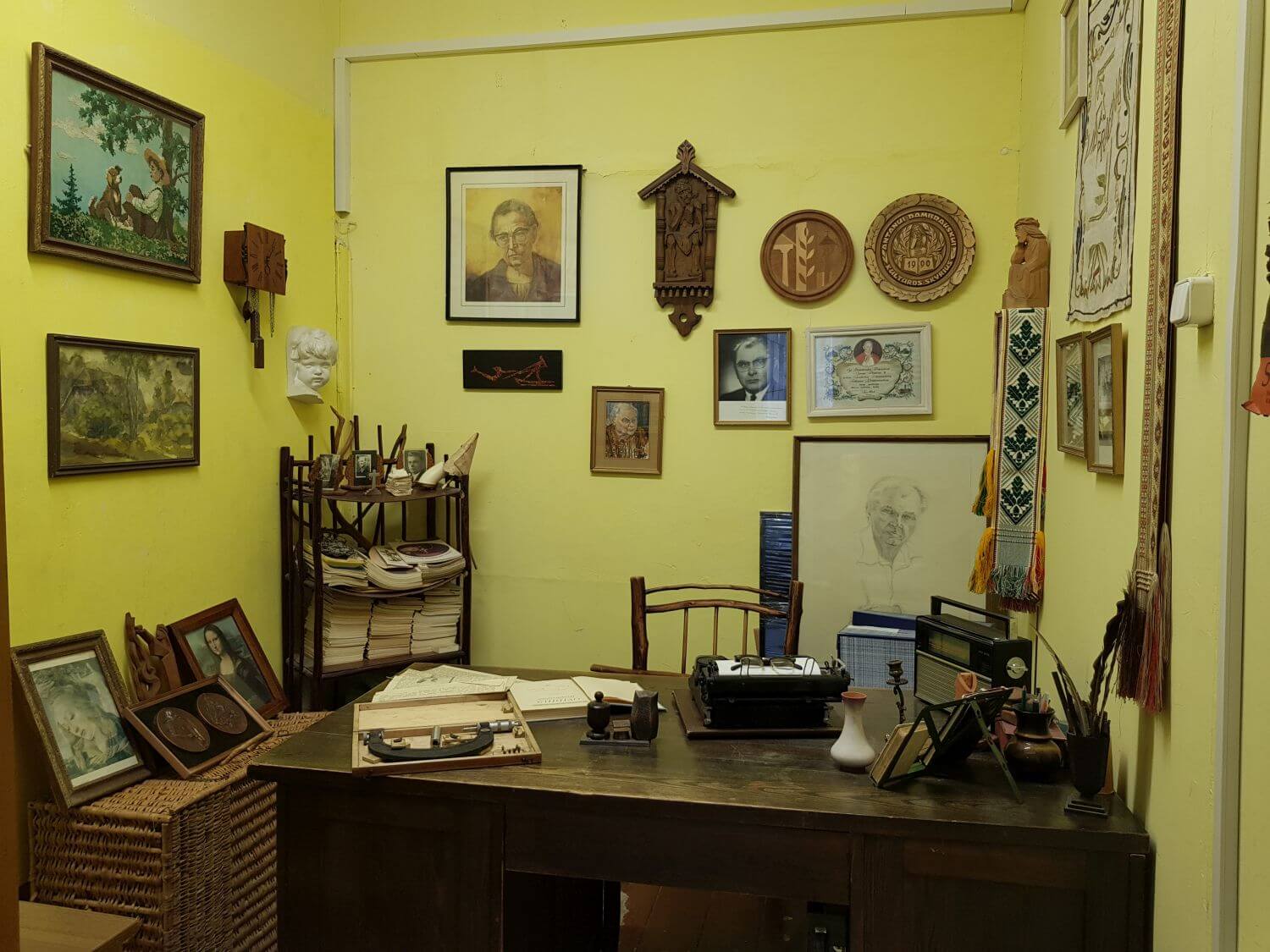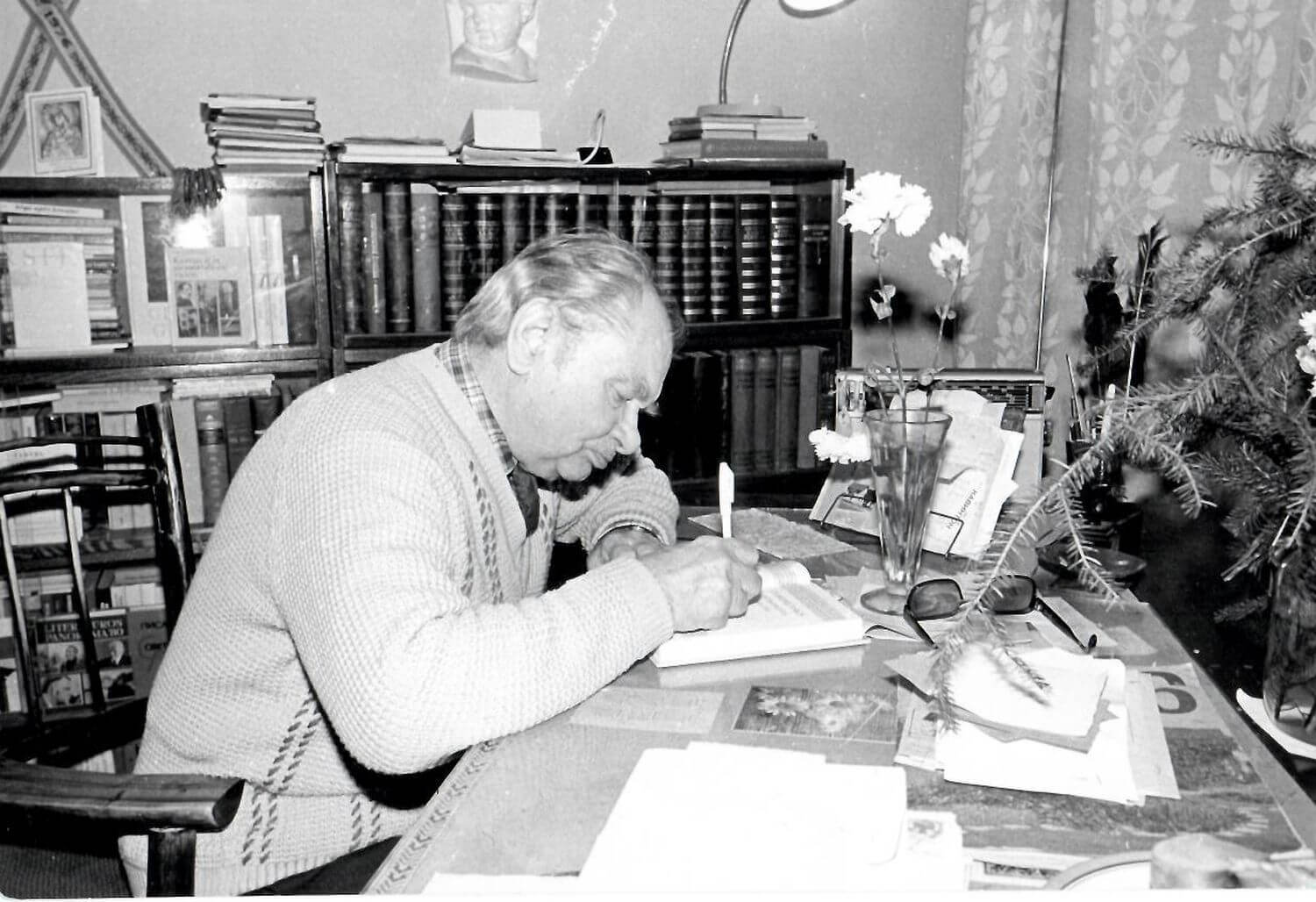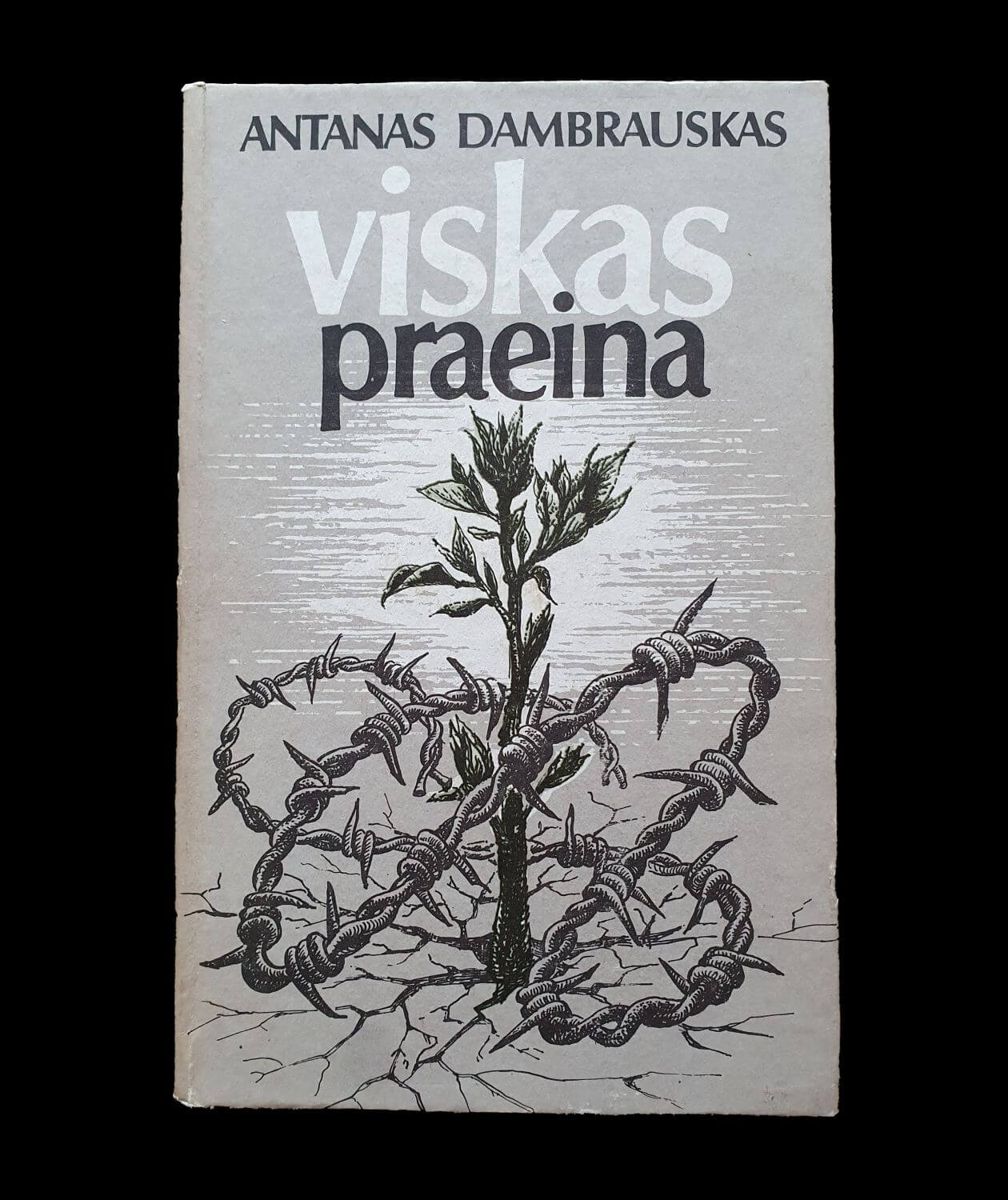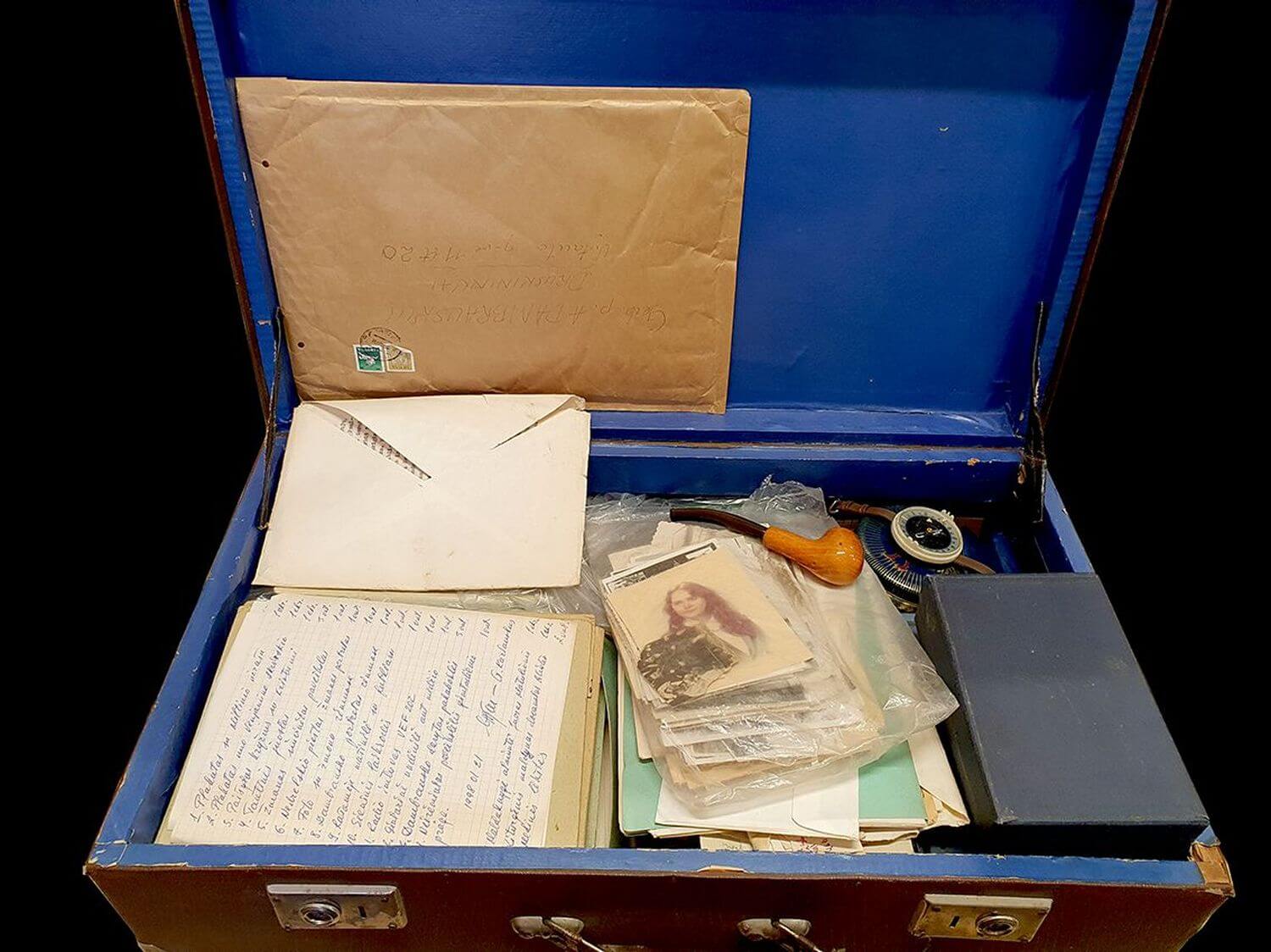““Everything passes, for everything in this earthly life, in this dale of tears, the evening is near.
And when the day fades more and already begins to shut its eyes, it’s nice and maybe useful to look in the direction
where the sun rose before the decades of joy and hardship, awakening
and raising the most beautiful hopes…”
“.
A. Dambrauskas
So penned the man who gave so much to Lithuania, made Druskininkai famous, and accomplished so much in seemingly impossible conditions, in his autobiography entitled Viskas praeina (“Everything Passes”).
The Druskininkai Resistance and Exile Museum has a memorial room for Antanas Dambrauskas, a prominent cultural figure, writer and translator of ancient literature who was a former political prisoner. Who was this distinguished person?

Antanas Dambrauskas was born on 28 January 1911 in Norkūnai, not far from Rokiškis, on a lovely farm that looked impressive many years later, with a beautiful house and outbuildings, tall trees surrounding the homestead, and order all aroound – a place where everything said that good, hardworking people lived there. His brother stayed at home to farm, while Antanas was destined to pursue education and maybe even become a priest. At first that’s what happened – he entered the Kaunas Priest Seminary in 1931. However, Antanas was demanding of himself, and when he began to doubt his vocation a year later, he transferred to the Faculty of Humanities at Vytautas Magnus University.
After graduating from the university, he worked as a teacher from 1936 until 1945, before his arrest, at the Kaunas III Gymnasium. His talents and constant systematic work allowed him to accumulate a lot of knowledge during his studies; he learned Latin and ancient Greek, and began teaching at the inter-diocesan Kaunas Priest Seminary in 1944 as well.

He was never a hypocrite, and never showed support for the changes the Soviets were introducing in the education system. It is likely that Dambrauskas’s connection with the Kaunas Priest Seminary was what led to him being drawn into the vortex of Bolshevik terror.
He was arrested in December 1945, interrogated, imprisoned in Kaunas and Vilnius, and sentenced to 10 years of hard labour. On 21 April 1946, he was taken to the Chelyabinsk hard labour camp before being moved to Kopeysk, some 20 km away.
Brutal conditions of detention, hard labour, hunger, and solitary confinement for even the smallest “transgression”. That’s how days, months, years passed by… In February 1949, it was back to the livestock wagons and two weeks on the East Siberian Railway via Novosibirsk. From there it was south, to Kazakhstan. Once they reached the small settlement of Karabas, they walked another 30 km to Spassk, where 20,000 men and 10,000 women were straining under the yoke of hard labour. Dambrauskas was imprisoned in Spassk until October 1951, and then came a stage that took him to Kemerovo Oblast, to the Mezhdurechensk hard labour camp at the confluence of the Tom and Usa rivers, and then a week later to Olzheras. He was there until the summer of 1953 when the camp was transferred to Omsk, where he was imprisoned until February 1955 before being “freed” into exile, in the same place in Siberia.
In Druskininkai
After returning to Lithuania, it took Dambrauskas ages to get registered, and he struggled to find a job.
When he found out that there was a vacancy for a tutor at the Saulutė Children’s Sanatorium in Druskininkai, he went there and was hired by chief physician Vincas Tekorius. Later, when Dambrauskas was at risk of being fired for being an “enemy of the people”, Tekorius stood up for him and looked out for him as much as he could.
After receiving a sad letter from a political prisoner named Aleksandra, Antanas invited her to Druskininkai, where, after all of their hardships, they got married and started a life together.
About his work at the Saulutė Children’s Sanatorium, Dambrauskas said:
“On 7 February 1957, I started the job of ‘snot wiping’ at Saulutė and wiped conscientiously for 20 years…” “…In addition to the hardship, there was also romance. When I bore that ‘snot wiping’ cross, it was no big deal. It seemed like that was how it had to be, but I drank the cup of contempt throughout the years of the Soviet regime. Working at Saulutė was physically exhausting, but it did not satisfy the spirit. I had to make a choice – start drinking to soothe the fatigue or come up with a job that filled my heart. I began to want to continue the translation work that I had started back in 1945, translating the famous Roman writer Virgil’s Georgics into Lithuanian…”
Thus began a huge academic undertaking that required tremendous effort, diligence and patience.
Translating from Latin and Greek, making comparisons with translations into German, French and a number of other languages, interpreting, and compiling glossaries of mythological and geographical names.
One by one, books translated into Lithuanian by Antanas Dambrauskas were published and reprinted: Aristophanes, Virgil, Plautus, Sophocles, Homer, Ovid, Terence, the Holy Scripture.
“Everything Passes”, 1991.

The symbolic release date – restored independence, and a respectful bow, like a confession of love for Aleksandra – using words that she had once embroidered as the title of the book.
Fragments of an autobiography, a large portrait gallery of people met on the road of life – the person and his environment are presented succinctly, with a few precise strokes. Acquaintances in interwar Kaunas, and the good people and executioners met in captivity, who left behind wounded memories that now read like the pages of a horror movie script.
For his translations of ancient classics into Lithuanian, for his fostering of Lithuanian literature and culture, for his merits in pedagogical work, and for his contribution to the cultural life of the Lithuanian state and Druskininkai, the Druskininkai Municipality Council awarded Antanas Dambrauskas the title of Honorary Citizen of Druskininkai on 10 September 1994.
A marble tablet on Antanas and Aleksandra Dambrauskas’ grave is inscribed with the words of the translator: “I did what I could – the Lithuanian has Homer. The drama of the Greek Sophocles, the hymns of the Roman Virgil. I also tried to convey what God spoke through the prophets. And the words of wisdom spoken by Solomon. Where I have erred, may the Lord be gracious to us.”
Antanas Dambrauskas’s suitcase – a legacy for the future
Three traditional Christian crosses and one of the barbed wires, rusted, apparently made in hardlabour camps where Antanas Dambrauskas spent time against his will. The barbed wire fragment has become a symbol of Christian suffering. Placed in an old Jaguar watch box. Pins to mark the 400th anniversary of Vilnius University, two pipes, old glasses.
A 1969 “Shock Worker of Communist Labour” certificate – just not for his translations, but for his work with children at the Saulutė sanatorium. Whistles to call children in from the yard, pencils, paper clips, a compass, stencils.
“The Siberian forest hugged you tight, pressed you against to its snowy chest, a hungry axe in hand, hundreds of kilometres of forest” – an authentic carving.
Letters to Father Dominykas about “translation of the Psalms” from Hebrew. Little nuggets for translators.
1986 photos of Antanas Dambrauskas in the cemetery and at home. Unique photos where we recognise Dambrauskas at Vytautas Magnus University and the Kaunas Priest Seminary.
An authentic letter written by the director Juozas Miltinis in 1970 about the translation of Oedipus Rex from the original.
Draft manuscripts of translations of the Holy Scriptures.
“Memoirs of the Journey of My Life”: a manuscript.
Letters that will tell us a lot about the unique polyglot, luminary, big-hearted person and honorary Druskininkai citizen of Druskininkai – Antanas Dambrauskas.
Many will come and explore the unique contents of Antanas Dambrauskas’s suitcase to soak up the strength and diligence of the Fatherland and God.



